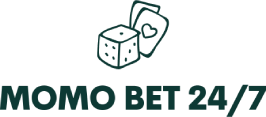As enthusiasts and analysts of betting markets, we find ourselves constantly navigating the intriguing landscape of market efficiency. This article delves into the ongoing debate of weak versus strong form efficiency, a topic that has piqued our collective curiosity and fueled countless discussions.
In the world of betting, understanding how efficiently markets process and reflect information is crucial for both seasoned bettors and curious newcomers.
Key Questions:
- Are prices truly reflective of all available information?
- Do hidden inefficiencies offer opportunities for gains?
Forms of Market Efficiency:
-
Weak Form Efficiency:
- Past prices are considered inapplicable in predicting future outcomes.
- Assumes all historical prices are already incorporated into current prices.
-
Strong Form Efficiency:
- Suggests that all information, both public and private, is already reflected in current prices.
- Implies no investor can achieve excess returns using any information.
By exploring these concepts, we aim to shed light on the complex dynamics of betting markets and help our readers make informed decisions in their betting strategies.
The Efficiency of Weak Form Markets
Weak Form Market Efficiency suggests that current prices reflect all past market data, making it impossible to gain an advantage through historical information. This implies that:
- Analyzing past trends alone is not sufficient to consistently outperform the market.
- Markets integrate available information quickly and effectively.
Exploring Market Dynamics
As a community interested in market dynamics, we are drawn to understanding how much information is already incorporated into current prices. Our curiosity drives us to explore:
- The extent to which information is baked into prices.
- The role behavioral biases play in market valuation.
Behavioral Biases and Market Corrections
While behavioral biases can lead us to overvalue or undervalue certain data points, in a weak form efficient market, these biases are:
- Quickly corrected as new information becomes available.
- Balanced by the dynamic interplay between human behavior and market forces.
Navigating Complex Systems
Together, as we navigate these complex systems, we strive to:
- Appreciate the balance between human behavior and market forces.
- Find our place and understanding within this dynamic environment.
Challenges in Weak Form Efficiency
In our analysis, we often encounter challenges like data limitations and noise that can obscure the true level of weak form efficiency. These obstacles make it difficult to accurately assess how well past information is reflected in current market prices.
We recognize that incomplete or inaccurate data can distort our view of market efficiency, leading us to question the reliability of our conclusions.
Moreover, behavioral biases play a significant role in complicating our understanding of market efficiency. As human emotions and cognitive biases seep into decision-making, they can cause deviations from rational expectations, thereby affecting the efficiency of the market.
It’s crucial for us to consider these biases as they impact how information is processed and utilized.
By acknowledging these challenges, we foster a sense of belonging among those of us who are committed to understanding market dynamics. Together, we can navigate the complexities of market efficiency, striving to refine our models and improve our interpretations of the information at hand.
Strong Form Efficiency Explained
Strong form efficiency asserts that all available information, both public and private, is fully reflected in market prices. This concept presents a significant challenge:
- It implies that no one can consistently achieve higher returns through insider information.
In this perfect scenario, market efficiency reigns supreme, and every piece of information—whether whispered behind closed doors or broadcasted publicly—finds its way into the prices we see.
Skepticism and Behavioral Biases
We might feel a bit skeptical about this concept, as behavioral biases often lead individuals to act irrationally, potentially distorting market prices. However, the idea is that:
- These biases, along with all other information, are already accounted for in the market’s collective wisdom.
This fosters an environment where:
- We’re all on equal footing, reliant on the market’s ability to process information efficiently.
Trust in Market Assessments
While we might not always agree with the market’s assessments, the notion of strong form efficiency challenges us to:
- Trust in the market’s capability to integrate information comprehensively.
- Rely on the market’s collective processing of all available data.
In summary, strong form efficiency encourages us to have confidence in the market’s ability to reflect all information accurately in its pricing.
Implications of Strong Form Efficiency
Strong form efficiency means we can’t consistently outperform the market by using insider information or private data. This concept fosters a sense of unity among market participants because it levels the playing field.
We recognize that market efficiency integrates all available information, making it nearly impossible to gain an unfair advantage. It’s comforting to know that no one has a secret edge, as behavioral biases are something we all contend with.
In a world where market efficiency reigns, our focus shifts from chasing elusive tips to honing our skills and strategies. Together, we rely on our shared understanding of market dynamics rather than futilely seeking insider knowledge.
By acknowledging the limits of our information, we foster a community grounded in fairness and transparency.
Strong form efficiency encourages us to:
- Value collective wisdom over individual advantage
- Reinforce the idea that shared experiences and insights are our greatest assets in navigating betting markets.
Testing Market Efficiency: Methodologies
To evaluate the efficiency of betting markets, we employ several methodologies that rigorously test how well market prices reflect available information.
Examination of Historical Data:
- We examine historical data to identify patterns and discrepancies.
- By using statistical models and econometric techniques, we assess whether markets align with the principles of market efficiency.
- This involves analyzing how quickly and accurately market prices adjust to new information.
Event Studies:
- Event studies analyze market reactions to specific occurrences, such as player injuries or unexpected weather conditions.
- These studies help determine if market prices efficiently incorporate such information.
Predictive Modeling:
- We apply predictive modeling to forecast outcomes and compare them with actual results.
- This comparison allows us to pinpoint any inefficiencies present.
Collaboration and Exploration:
By collaborating in this exploration, we can uncover instances where behavioral biases might skew market prices.
This reminds us of the importance of continuous scrutiny and adaptation within our shared community of bettors and analysts.
Behavioral Biases in Betting Markets
In betting markets, cognitive biases often influence decision-making, leading to inefficiencies. As a community of bettors and analysts, we understand how these behavioral biases can skew our perception of market efficiency.
Overconfidence Bias:
- This bias can make us overly reliant on our knowledge.
- It often leads us to ignore crucial information that doesn’t fit our narrative.
- As a result, overconfidence can cause poor betting choices and unexpected outcomes.
Recency Bias:
- This bias might cause us to overvalue recent events.
- We may mistakenly think recent events predict future performances.
- It often leads to ignoring a broader historical context.
Recognizing these biases is crucial to maintaining a balanced perspective, as they can distort our understanding of true probabilities and market signals.
By collectively acknowledging our tendencies towards behavioral biases, we can strive for improved decision-making and enhance the overall efficiency of the betting market.
Let’s work together to overcome these challenges by:
- Using shared insights to navigate complexities.
- Making more informed, rational bets.
We belong to a community that values thoughtful reflection and continuous learning.
The Role of Information in Efficiency
In our quest for efficient betting markets, we rely heavily on the quality and accessibility of information to make informed decisions. Market efficiency hinges on the seamless flow and transparency of information, allowing us to assess odds and probabilities with greater accuracy.
When information is accurate and readily available, we create a level playing field where informed participants can make decisions without undue influence from behavioral biases.
As a community, we thrive on shared insights and the collective pursuit of knowledge. However, when information is unevenly distributed or distorted by biases, market efficiency suffers. We may find ourselves swayed by emotional impulses or overconfidence, leading to decisions that don’t align with rational expectations.
This highlights the importance of:
- Questioning the information we receive
- Remaining vigilant against biases that cloud our judgment
By valuing the integrity of information and acknowledging our cognitive limitations, we can foster a more efficient and inclusive betting market where everyone feels informed and empowered.
Strategies for Navigating Market Efficiency
To successfully navigate market efficiency, we must develop robust strategies that balance analytical rigor with adaptability. By focusing on the flow of information, we can better predict how markets respond and identify opportunities others might overlook.
Using Data Analytics:
- Utilize data analytics to filter and interpret vast amounts of information.
- Empower decision-making to align with our community’s shared goals.
Recognizing and Mitigating Behavioral Biases:
- Acknowledge that we all have biases.
- Stay aware to minimize the impact on betting strategies.
- Foster camaraderie by supporting one another, sharing insights, and learning from experiences.
Staying Flexible:
- Markets evolve, and so must our strategies.
- Continuously refine our approach and stay open to new methods.
- Strengthen our collective ability to adapt.
Together, we can thrive in the dynamic environment of market efficiency while fostering a sense of belonging and shared success.
Conclusion
In conclusion, navigating betting markets requires understanding both weak and strong form efficiency.
Despite challenges and behavioral biases, information plays a crucial role in market efficiency.
By employing effective strategies and staying informed, one can make more informed decisions in betting markets.

